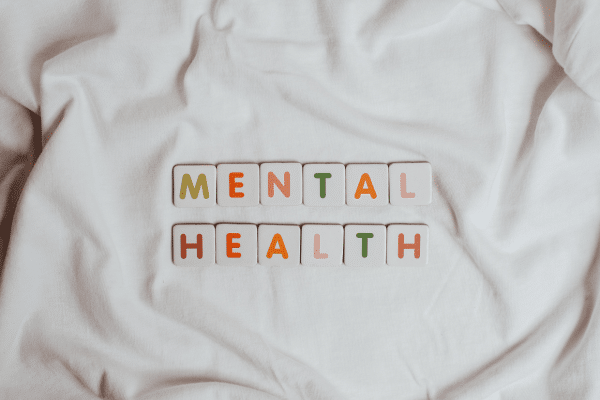Gut health, often overshadowed by other aspects of wellness, is the silent regulator of many functions in the human body. The gut, which is home to trillions of microbes, plays a pivotal role in determining how the body responds to various health challenges. A healthy gut not only ensures proper digestion but also influences the immune system, heart health, and even the brain’s functionality. It’s imperative to understand its vast influence and the mechanisms by which it maintains our overall health.
Contents
Enhances Heart Health

A healthy gut directly and indirectly supports the cardiovascular system. High levels of bad cholesterol and hypertension are two major risk factors for heart disease. Recent research has unveiled that certain gut bacteria can influence the metabolism of cholesterol in the liver, thereby playing a role in regulating cholesterol levels. Furthermore, specific bacteria produce compounds that have anti-inflammatory properties, which are essential in keeping the heart’s arteries clear and flexible.
Besides cholesterol regulation, the gut plays an essential role in managing blood pressure. The relationship between salt, the gut, and high blood pressure is a topic of intense research. Certain gut microbes have shown promise in reducing blood pressure by modulating the effects of excessive salt intake. By understanding and optimizing the gut’s health, one can potentially unlock a powerful tool in the fight against heart disease.
Boosts Immune System Function

Did you know that the gut is often referred to as the body’s second brain? This is because it’s an integral part of the immune system. More than 70% of the immune cells reside in the gut, highlighting its importance in fending off infections and diseases. A balanced gut microbiota ensures that these immune cells are functioning optimally, warding off harmful pathogens and reducing the incidence of illness.
However, an imbalanced gut can be detrimental. It can lead to conditions where the body mistakenly attacks its own cells, leading to autoimmune disorders. Moreover, an unhealthy gut can also increase one’s susceptibility to infections, as the natural defense mechanisms are compromised. The significance of the gut in immune regulation underlines the need for its care and maintenance.
Improves Mental Health

The intricacies of the gut-brain connection are still being unraveled, but it’s evident that the gut wields significant influence over mental well-being. Gut bacteria play a role in producing neurotransmitters, chemical messengers that transmit signals in the brain. For instance, a majority of serotonin, often referred to as the “happiness hormone,” is produced in the gut. A disruption in the balance of the gut microbiome can potentially impact the production and function of these neurotransmitters, thereby affecting mood and cognitive function.
Furthermore, emerging research is highlighting the potential link between gut health and conditions like anxiety, depression, and even autism. Certain gut bacteria produce short-chain fatty acids, which have anti-inflammatory effects and can influence brain function. There’s a growing consensus that by maintaining gut health, one can potentially stave off or alleviate some mental health issues.
Aids in Digestion and Nutrient Absorption

Digestion is the primary function of the gut, and its health is paramount in ensuring the efficient breakdown and absorption of nutrients. When the gut microbiota is balanced, it aids in the breakdown of complex foods, facilitating the absorption of vital vitamins and minerals. This not only ensures that the body gets the necessary nutrients but also helps in eliminating waste efficiently.
However, an imbalanced gut can lead to various digestive issues. Malabsorption can result in deficiencies, while other complications like bloating, gas, and diarrhea can arise due to the overgrowth of harmful bacteria. Ensuring a healthy gut means ensuring the body is nourished adequately and is devoid of uncomfortable digestive complications.
Promotes Healthy Skin

The condition of one’s skin can often reflect inner health, especially the state of the gut. The gut-skin axis, an area of growing interest, delves into how the gut can influence skin conditions like eczema, rosacea, and acne. For instance, when the gut is in dysbiosis (an imbalance), it can lead to inflammation, which may manifest on the skin. Certain gut bacteria, on the other hand, can support skin hydration and fortify its barrier function, resulting in a radiant complexion.
Moreover, harmful substances and toxins that aren’t efficiently processed due to an unhealthy gut can make their way to the skin, causing breakouts and other issues. It’s becoming clearer that by nourishing the gut, one could be taking a significant step towards achieving glowing, healthy skin.
Strengthens Bone Health

Bone health is essential for mobility and overall well-being, and it seems the gut plays a role in it too. Certain gut bacteria are involved in the metabolism of calcium and other bone-essential nutrients, thereby impacting bone density. These microbes facilitate the absorption of these minerals, ensuring that bones remain strong and healthy.
On the flip side, an unhealthy gut can put bone health at risk. Reduced absorption of bone-building minerals can lead to conditions like osteoporosis and increased fracture risks. Given the stakes, it’s clear that maintaining gut health could be instrumental in ensuring skeletal strength and durability.
Reduces the Risk of Chronic Diseases

The gut’s influence extends to the broader spectrum of chronic diseases, often serving as the frontline of defense. Chronic inflammation, a common denominator in many chronic diseases like arthritis, cardiovascular disease, and even certain cancers, is often linked to an imbalanced gut. A healthy microbiota helps regulate inflammation by producing anti-inflammatory compounds and ensuring the integrity of the gut lining.
Moreover, the gut’s role in detoxification is paramount. It aids in the elimination of toxins and waste, which, if accumulated, can increase the risk of chronic diseases. A thriving gut ecosystem can also influence how the body responds to antioxidants and other protective compounds from the diet. In essence, prioritizing gut health could be a significant move in preventing or managing chronic diseases.
The Bottom Line
A healthy gut transcends the simple function of digestion. Its influence permeates various aspects of health, from the heart to the skin and even to the bones. As more research surfaces, it becomes evident that maintaining gut health is not just a fad but a crucial strategy for holistic well-being. By understanding its vast impact and taking proactive measures, one can harness the gut’s potential and pave the way for a healthier future.


